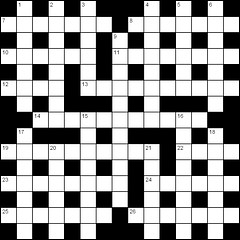Does the whole picture fit together?
 Sunday, November 4, 2012 at 9:56PM
Sunday, November 4, 2012 at 9:56PM  This question captures the meaning of ‘care coordination’. Are all the elements coming together in a coordinated sequence or pattern? It is a question that we apply to many aspects of our daily lives. We ask it, for example, about the colour schemes and fittings of interior design; the layout of an exhibition or gallery; the clothing we wear in particular situations. Simplicity and straight lines in a map or set of instructions often seem to help us to understand what we are doing, where we are going and how we can get there more easily. Complex pictures and plans might please people who enjoy the challenge of working out puzzles rather than having the solution given to them but, depending on how much time you have and what kind of person you are, high levels of complexity may serve only to frustrate you and turn you off.
This question captures the meaning of ‘care coordination’. Are all the elements coming together in a coordinated sequence or pattern? It is a question that we apply to many aspects of our daily lives. We ask it, for example, about the colour schemes and fittings of interior design; the layout of an exhibition or gallery; the clothing we wear in particular situations. Simplicity and straight lines in a map or set of instructions often seem to help us to understand what we are doing, where we are going and how we can get there more easily. Complex pictures and plans might please people who enjoy the challenge of working out puzzles rather than having the solution given to them but, depending on how much time you have and what kind of person you are, high levels of complexity may serve only to frustrate you and turn you off.
The degree of creativity experienced in the smallest to the most complex of mental health tasks will largely be influenced by the attitudes, feelings and personal values that are in play at the time. For example, the simple task of arranging an appointment, and then attending it, might just be part of what a particular person does, and they might do it methodically, with little or no thought. But even a simple task like this can be subject to enormous influences, such as the availability of rooms, effective computer systems, clarity of communication, motivation to attend and transport on the day. Failure to meet the appointment, for whatever reason, has the potential to cause frustrations, fuelling deeper tensions and attributions of blame. But the successful completion of a simple task like this rarely generates the positive feelings that perhaps it deserves. Not all appointments and methods of support are creative, passionate and artful events; but the message is that we need to be more reflective about the smaller details if we are to derive more pleasure from our work routines. This message applies to all practitioners involved in care and support, as the care coordinator occupies a role of supervising the whole picture, not painting the whole picture alone!
Successfully coordinated care and support can be a great source of satisfaction and pleasure for providers and receivers alike. See the ‘Art of Coordinating Care’ manual for a detailed approach to capturing the creativity in the role.







Reader Comments